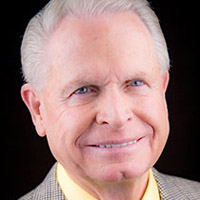How to Lead in the Age of Agile During a Pandemic

How to Lead in the Age of Agile During a Pandemic
Have you heard of agile? It’s often a buzzword in the workplace. Agile started as a philosophy related to software development. But in the past few years, it has morphed into an entire work philosophy. It’s generally viewed as the ability to create and respond to change. When a business, or an individual can accept change and handle it appropriately, they’re considered agile. To my mind, nothing epitomizes “agile” more than the tremendous achievements of late where entire companies have adapted to remote work and other substantial responses to stay in business during the COVID-19 pandemic.
Becoming an Agile Leader
Adapt or die is not a new concept. And agile has become a very important characteristic in the work world because when companies are agile, they generally achieve more success. Therefore, companies are looking for agile leaders to help them survive, or in some cases, take them to the next level. But this requires learning and developing new leadership skills. Here’s what leaders need to learn to become agile.
Be Transparent – many leaders like transparency from their teams but sometimes lack transparency in their own work. Agile leaders are truly transparent with their team members by sharing important information, i.e. company goals and priorities and openly share their own efforts.
Develop Your Team – agile leaders help develop their members to grow and improve, encourage their team members to become their best, and reward them when they succeed.
Stay Out of the Way – an agile leader knows how to stay out of the way by setting an expectation for his team, and by checking in and following up without micromanaging or overshadowing their work. As more employees work from home, they face new challenges and at the same time must learn to be more independent. Focus on their ability to take ownership to get things done in new and creative ways best suited to their personal situation. Perhaps they start work earlier, or different hours?
Connect With Customers – understanding how to connect with, and interact with customers is a key characteristic of an agile leader: they aren’t afraid to set expectations with their customers and allow opportunities for them to participate in the work. Clear and possibly additional communication with clients is more important than ever.
Take Some Risks – agile leaders understand that taking risks is necessary to achieve greater results and aren’t afraid to keep learning new things. In fact, they’re always trying to learn new things and encourage their team members to keep learning and to take risks. They know that failure is going to happen. But they see failure as an opportunity to learn and grow.
Give Feedback Often – good leaders never underestimate the power of positive feedback and mutual respect. Clear communication with employees is more important than ever. Good leaders understand the more feedback they can provide, the more helpful they are to their teams. Agile leaders aren’t afraid to receive feedback, rather they encourage feedback from their team members which builds trust and better adapt to changes caused by our new realities.
Empower Employees – agile leaders understand the importance of empowering their team members knowing this will lead to greater success. And then celebrate that success by giving their teams credit and recognition. They share the spotlight and understand that everyone wins together.
If you want to be an agile leader in the age of agile, especially during a pandemic, you must learn to develop these skills and implement them into your leadership philosophy.
We hope you found this article about how to lead in the age of agile during a pandemic helpful. If you have questions or need expert tax or family office advice that’s refreshingly objective (we never sell investments), please contact us or visit our Family office page or our website at www.GROCO.com. Unfortunately, we no longer give advice to other tax professionals gratis.
To receive our free newsletter, contact us here.
Subscribe to our YouTube Channel for more updates.
Considerately yours,
GROCO, GROCO Tax, GROCO Technology, GROCO Advisory Services, GROCO Consulting Services, GROCO Relationship Services, GROCO Consulting/Advisory Services, GROCO Family Office Wealth, and GROCO Family Office Services.
For more information about agile leadership during a pandemic, family office or tax services, please visit GROCO.com, contact your GROCO tax advisor or email Hello@GROCO.com.
Follow GROCO on Facebook

Alan L. Olsen, CPA, Wikipedia Bio

What Venture Capitalists Want | Wally Hawley
About Wally Hawley Wally Hawley is a co-founder of InterWest Partners (1979), one of the larger venture capital partnerships in the United States, formed to make equity investments in diversified U.S. growth companies. His prior experience includes seven years as President of SHV North America Holding Corp., a wholly owned subsidiary of a Netherlands…
Venture Capital’s Role in Nuclear Science | Ray Rothrock
About Ray Rothrock As a venture capitalist for more than two decades, Ray has assisted entrepreneurs in achieving their dreams and produced outstanding financial returns for his limited partners. He has personally discovered, created and guided more than 50 companies in the Venrock portfolio through their early stages of formation and emerging growth. Beginning…
Doing the Tough Things First | Ray Zinn
About Ray Zinn Ray Zinn is a co-founder of the Company Micrel and has been its President, Chief Executive Officer and Chairman of its Board of Directors since the Company’s inception in 1978. As our Chief Executive Officer, Mr. Zinn gives the Board of Directors insight and in-depth knowledge of the semiconductor industry and…
Todays China | Nicholas Hope
About Nicholas Hope Nicholas Hope is the Director of the Stanford Center for International Development (SCID). He also directs SCID’s China research program. His current research is private enterprise development in China and progress of reforms in China, especially in the financial sector. His interests are in East Asian economies, especially China and Indonesia,…




